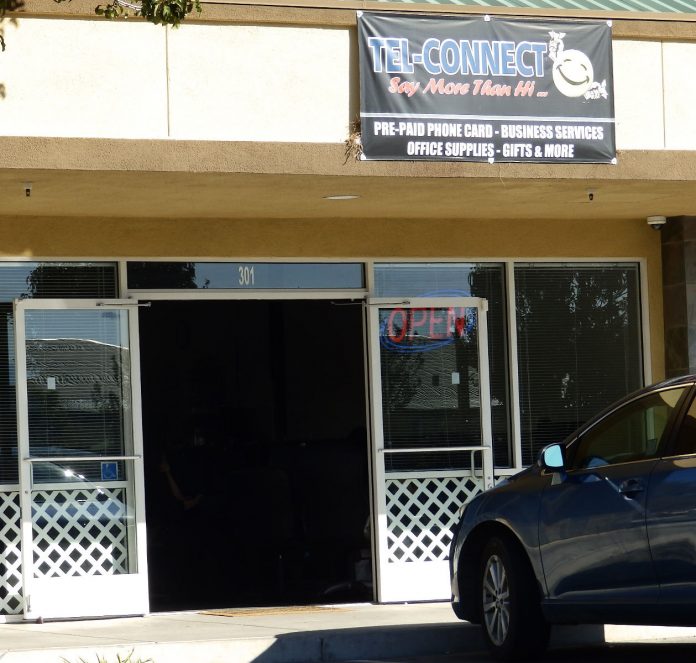In a corner store across from KFC, a woman leaned over a computer screen and clicked numbers showing on the monitor.
The store—called Tel-Connect and located in the same shopping center as the Lucky supermarket off McCray Street—advertises pre-paid phone cards, business services, office supplies and gifts on a storefront banner.
But inside, visitors can sit down to play electronic gaming machines and win electronic cigarette products, snacks and other prizes such as loading points on phone cards, the owner confirmed.
“They used to redeem for cash money,” said Owner Angham Aldawood when asked Friday.
But Aldawood said that was before she took over the business as part of a divorce settlement and re-opened it Oct 1. She said since the store changed from offering cash to giving out prizes, business has dropped.
“Actually, I’m thinking about closing,” she said. “It’s not worth it.”
Prior to her reopening of the store, it was closed for two months, she said.
Aldawood’s chair behind a counter looked out to a room with rows of large computers on each side of the floor. On Thursday afternoon, one of the customers was playing a slot-like game on a computer there. Friday afternoon, there were eight people inside playing games.
The owner when interviewed Friday downplayed any questions about the activities there. It’s more like it’s an “amusement place,” said Aldawood, as she stood behind a glass counter displaying e-cigarette vapor products. Behind her, a shelf of snacks hung on the wall.
“It’s like a Chuck E. Cheese for adults,” she added.
Certain types of gambling—defined in the Merriam Webster dictionary as a game in which you can win or lose money or possessions—are permitted at a federal level, but states can choose to enact more-restrictive laws. In Hollister, the mayor reacted to the potential for gambling in an interview Friday.
“Obviously, we don’t want any gambling going on in our city,” said Mayor Ignacio Velazquez.
He said if gambling is happening in the city, officials will shut it down.
Several city council members–including Victor Gomez, Karson Klauer, Ray Friend and the mayor—had been recipients of an email from a community member. That person expressed concerns about activities at the McCray Street business, shared the location and forwarded those email communications to the Free Lance.
Customers playing games Friday did not want to speak with the Free Lance. One woman who didn’t want to provide her name mentioned she played for vapors, but then acknowledged she didn’t smoke and contended she gave the products away as gifts.
In California, the state constitution allows for the state lottery, expressly prohibits casinos like those in Nevada and New Jersey and allows the governor to negotiate—subject to legislative ratification—permitting slot machines and percentage card games on Indian lands. Raffles are okay as long as 90 percent of the gross receipts go to charitable purposes. Cities and counties can hold bingo games for charitable purposes. And any type of facility qualifying as a gambling establishment under state law must acquire a gambling permit.
California lawmakers looked into legalizing Internet poker through two bills—Senate Bill 1366 and Assembly Bill 2291—in 2014, according to media outlets. Neither bill passed.
Earlier this year in southern Santa Clara County, the owner of the Gilroy Bizzness Center—closed down by police one week after it opened—pleaded no contest in court to charges of illegal gambling nearly two years after the store was permanently shuttered.
As for local regulations, the Hollister city code requires a cardroom permit for any cardroom activities regulated in the state act. An application for this permit must be made to the chief of police. The city also requires a permit for the use of any “mechanical amusement device” in a business.
Police Chief David Westrick declined to comment about the gaming shop in the McCray Street strip mall.
Editor Kollin Kosmicki contributed to this report.










